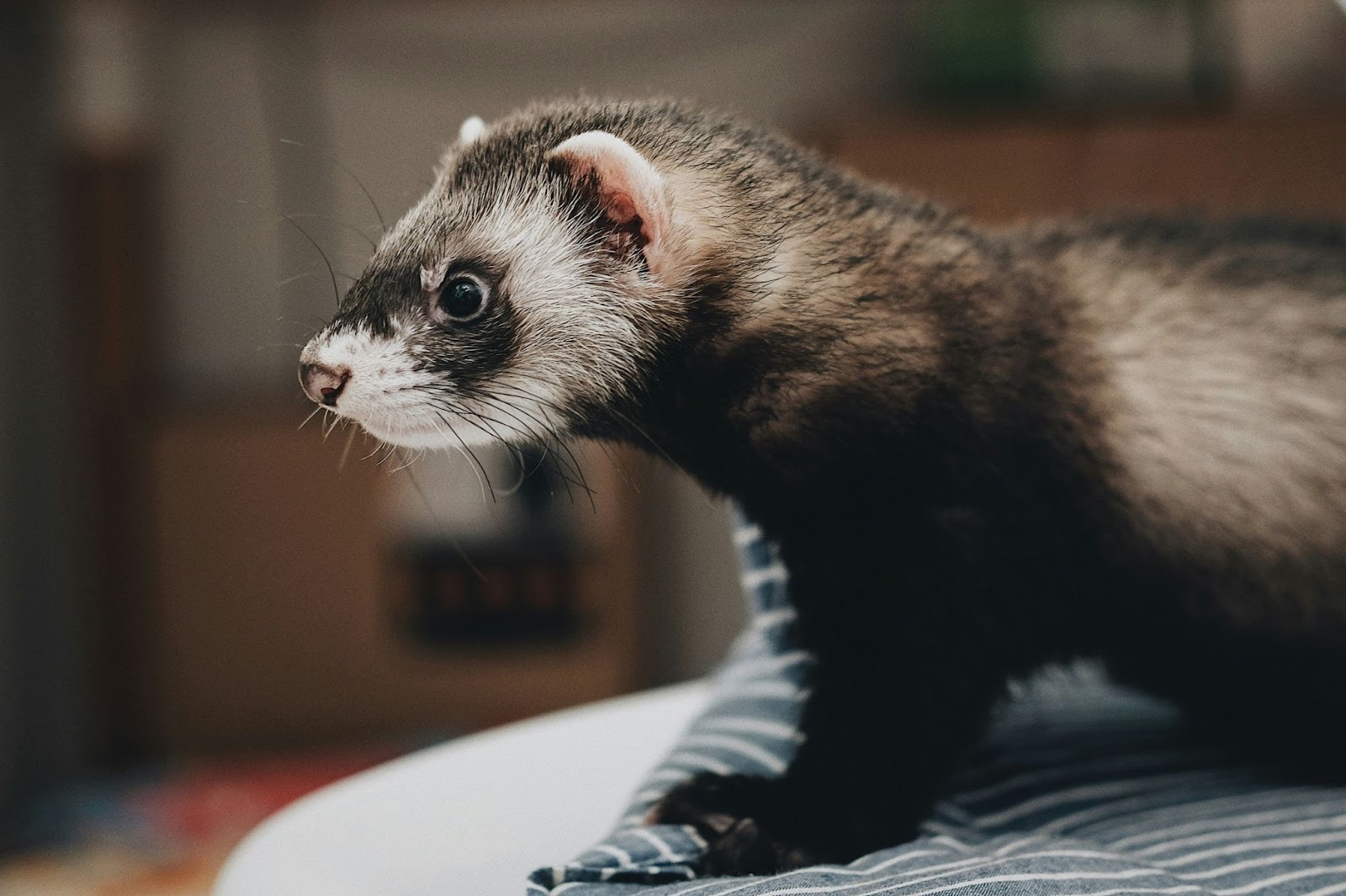
What is a Ferret?
Ferrets are small, playful mammals belonging to the weasel family, domesticated for over 2,000 years. Known for their curious and mischievous nature, ferrets are popular pets worldwide, although they remain banned in certain regions due to ecological concerns.
Types of Ferrets (Based on Breed and Use)
- Standard Ferret (Domestic): Most common type, widely kept as household pets due to their friendly demeanor.
- Angora Ferret: Distinguished by long, soft fur, bred primarily for their luxurious coat.
- European Polecat: Wild ancestor of the domestic ferret, found throughout Europe; occasionally kept as working or hunting animals rather than household pets.
Ferret Life Expectancy
- Average Lifespan: 6 to 10 years.
- Optimal Care: With proper nutrition, healthcare, and indoor housing, some ferrets can live up to 12 years.
- Environment: Indoor ferrets generally experience a longer lifespan due to protection from outdoor hazards and predators.
Ferret Personality and Behavior
Ferrets are known for their highly interactive and social personalities:
- Playful and Curious: Constantly exploring their environment, ferrets enjoy digging, hiding objects, and playful interactions.
- Social Interaction: They thrive on regular playtime and human companionship.
- Training: Ferrets can be trained to use a litter box and perform simple commands.
- Behavioral Traits: Young or untrained ferrets may bite when frightened or overstimulated, but early training and consistent handling mitigate these behaviors.
Why Do Ferrets Have Different Colors and Coats?
Ferret coat variations result from selective breeding and genetic diversity:
- Common Colors: Albino (white with red eyes), sable, chocolate, cinnamon, silver, black.
- Coat Patterns: Include standard, mitt (white paws), blaze (white stripe on head), and panda (white head with darker body).
- Seasonal Changes: Ferret coats often change slightly with age or seasonal shedding.
Importantly, coat color and pattern have no impact on a ferret’s personality or health.
What Do Ferrets Eat?
Ferrets are obligate carnivores requiring a diet rich in protein and fat:
- Optimal Diet: Specialized ferret kibble or high-quality kitten food ensures nutritional balance.
- Raw Diets: Can be offered under supervision, comprising raw meat suitable for carnivorous diets.
- Foods to Avoid: Fruits, vegetables, dairy, grains, and sugary foods, which can disrupt their digestive systems.
- Hydration: Always provide fresh, clean water.
Common Health Problems in Ferrets
Understanding common ferret health concerns is crucial for proper care:
- Adrenal Gland Disease: Very common, characterized by hair loss, weight loss, and behavioral changes.
- Insulinoma: Tumors affecting blood sugar levels, causing weakness, seizures, or lethargy.
- Dental Disease: Regular dental care and check-ups are essential to prevent tooth decay and gum issues.
- Parasites: Frequent occurrence of fleas and ear mites, requiring routine preventative treatments.
- Digestive Blockages: Due to their chewing habits, ferrets may ingest rubber or plastic, causing serious health issues.
- Vaccinations: Essential vaccinations include rabies and distemper, administered by a veterinarian.
Routine veterinary care and preventive health management greatly enhance a ferret’s longevity and well-being.
Conclusion: Is a Ferret the Right Pet for You?
Ferrets are affectionate, playful, and enjoyable pets but require substantial time, attention, and specialized care. They are less suitable for households with very young children or busy schedules. Prospective owners should provide ample space, secure environments, and regular supervision.
With informed care, patience, and love, ferrets can become delightful, loyal companions, bringing joy and lively entertainment to their families.


